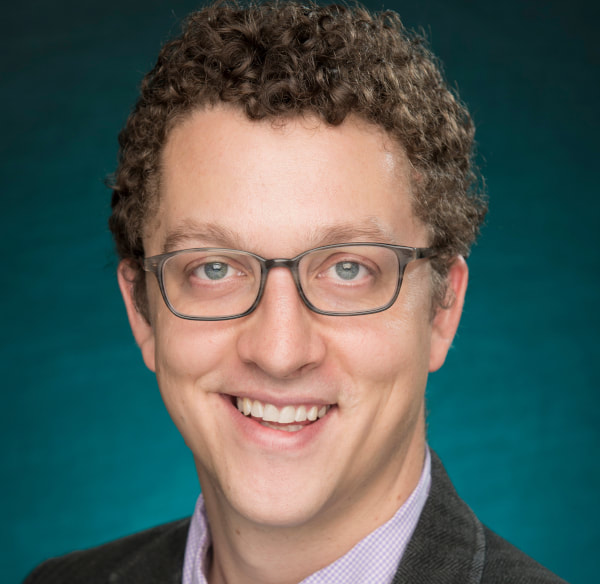The BEC Seminars 2021
Hello! Over the next few months the Biological Engineering Collaboratory will be hosting a series of online seminars featuring some of our members. The full programme, with abstracts, confirmed dates and times, can all be found below. In addition, each speaker has recorded a short video introducing their talk, which we share with the intention of helping to advertise the series and further grow the community.
If you would like to attend one, or all, of the seminars, please email Dominic Berry: d.berry [at] bham.ac.uk
This tool can help you convert the various time zones to your own local time: www.thetimezoneconverter.com/
If you would like to attend one, or all, of the seminars, please email Dominic Berry: d.berry [at] bham.ac.uk
This tool can help you convert the various time zones to your own local time: www.thetimezoneconverter.com/
|
23rd September 2021 - 17:00 CEST
Saliha Bayir - Bioremediation as Ecosystem Engineering: experimentation and narratives ABSTRACT
Bioremediation is an applied scientific field that works on the treatment of contaminated habitats including marine, lake, soil and other natural sites. In order to make the polluted environments more sustainable, researchers use the main principles of microbial ecology and apply them on site. Inducing the growth of microbes that would degrade target contaminators such as petrol spills and heavy metals, scientists aim at processing the pollutants in a more sustainable and feasible way. As the field mainly emerged from microbiological experiments of petroleum engineers, the application of microbial ecology principles in the field by engineers and their knowledge-making practices provide a rich ground for a philosophical and historical analysis. I aim to show how certain research questions, practices, concepts are taken from a basic science and resituated in order to overcome real-world issues with organizational, economic and political constrains by focusing on the epistemic practices of researchers starting from 1970s. |
5th October 2021 - 8:00 PDT
Elihu Gerson - Biological research and engineering collaboration: Some organizational considerations ABSTRACT
Collaboration across specialties includes more than epistemic integration. This talk discusses some organizational aspects of inter-specialty cooperation which must be understood and accommodated if effective integration and coordination of biological and engineering approaches is to succeed: 1) How integration of workflows proceeds at both project and specialty levels; 2) How differences in technical focus (models, data handling, characterization of phenomena, problem agendas) can be reconciled; 3) How ways of organizing and coordinating work in different contexts (e.g., research vs development, academia vs industry) can be integrated with established institutions. Such efforts can be conceptualized as multiple inter-dependent workflows, each a series of steps that contribute to the project as a whole. Some ways of conducting these collaborations will lead to significant changes in research and development conducted and integrated with other institutions. This will, in turn, impose new requirements on the conduct of research, education, and business. |
|
21st October 2021 - 20:00 AEDT
Dan Santos - Democratizing Biotechnological Knowledge and Innovation in Community Science Labs ABSTRACT
This seminar examines the democratization of biotechnology in community science labs. Closely associated with synthetic biology, these labs provide the resources to allow the broader public to conduct experiments and work on biological projects. In doing so, they attempt to expand possibilities for who can do science, what resources they can access, and how they can contribute to research and innovation. Comparing two community science labs located in the San Francisco Bay Area, this seminar will consider the assumptions, norms and aspirations which underlie calls for democratization, and the role of place-based, geographical factors in shaping these dynamics. It will attempt to be symmetrical in analyzing both scientific (biology, engineering) and social (political, ethical) knowledges and practices, and examine how they are shared and enacted in community science labs. In doing so, this seminar hopes to shed light on the meanings, possibilities and limits of democratizing biotechnology in practice. |
8th November 2021 - 17:00 CET
Hanna Worliczek - Does epistemic object choice shape valuation of knowledge in cell biology? ABSTRACT
Modern cell biology has been historically shaped by the intentional integration of practical and theoretical knowledge from various disciplines, such as cytology, biophysics, biochemistry, and molecular biology. In the foundational period of this discipline in the 1950s, the historical actors involved in the becoming, shaping and institutionalization of cell biology understood and addressed this venture explicitly as interdisciplinary. Given the central importance of visual knowledge and visual evidence for accessing the cell morphologically and physiologically, the invention, refinement and validation of imaging-related technologies has been essential throughout the second half of the 20th century. These technologies range from new optical/microscopic instruments and their application, recording devices, image improvement, measurement, and manipulation to molecular and cellular technologies. The latter include the production of specific antibodies, the engineering of molecule-specific dyes and reporter molecules, cell culture and cell manipulation techniques, and much more. A person involved in aspects of the invention, assessment, and validation of such technologies can be located in a spectrum between various “extreme” positions. E.g., technology as the primary epistemic thing vs. technology as a purely technical thing; self- or third-party assessment as cell biologist vs. engineer/physicist etc.; working in basic research vs. applied industry or translational research; research at universities vs. other institutions; publication in methods journals vs. publication in cell biology journals. Newly emerging or refined technologies make new aspects of the cell and its environment accessible to scientific inquiry, including novel levels of visual or temporal resolution, newly discovered entities, novel ways to experimentally manipulate cell functions, or different types of cells or environments of cells previously not included in the repertoire(s) of cell biologists. Thus, new technologies require phases of (re-)describing and establishing cellular phenomena (structurally and functionally) before explanatory work becomes meaningful. The output of such work (and with it often the assessment of the produced knowledge as “cell biological” according to the contemporary standards of the discipline) has been judged differently regarding its status, value, person-associated reputation, or innovative capacity. Historical sources reveal indications that such judgements are not necessarily correlated with the respective usefulness of such knowledge, but also strongly influenced by the framing of the presented work. In this seminar, I will probe different cases of such framings and contexts, to think about biological engineering in a perspective that considers tensions between and entanglements of knowledge producers and their intended or unintended audience. Since the 1970s, cell biology has increasingly become a discipline fragmented into highly specialized interdisciplinary research fields, each one with changing favorite epistemic objects and driving questions. Consequently, negotiating the disciplinary identity (including its implicit or explicit disciplinary culture) provokes sometimes strikingly contrary voices and opinions about what cell biology is and which ways of knowing are judged as fulfilling its disciplinary standards. Starting from the assumption that framing something as either an epistemic or a technical object, depending on the respective research field and/or intended audience, I aim to discuss factors that influence the judgement of knowledge and knowledge producer in a spectrum defined at one end by “engineering/methods mastery” and on the other end by breakthroughs in understanding how cells work. |
|
13th January 2022 - 12:00 EST
Nancy Nersessian - Reengineering Biology: In Vitro Simulation Modeling in Biomedical Engineering Sciences ABSTRACT
Basic research in biomedical engineering sciences (BMES) has dual aims: to develop understanding of complex biological systems and to manipulate, control, or intervene on them. This research often confronts the problem that it is not feasible, or would be unethical, to carry out experiments on animal or human subjects. Importantly, such studies, even if possible, would lack the requisite kinds of experimental control. Thus, in order for investigation to be possible, the biological system must be reengineered in ways that manage the complexity of the phenomena of interest. This is a complex interdisciplinary challenge. To achieve their goals, researchers need to devise ways to emulate selected aspects of the in vivo phenomena to a degree of accuracy sufficient to warrant their transferring inferences from the in vitro experimental simulation to the in vivo phenomena in the form of provisional understandings or hypotheses. That is, they need to build in vitro analogue model-systems, where I understand “building” to comprise iterative processes of designing, constructing, evaluating, redesigning, and experimenting with such model-systems. The practice of in vitro simulation modeling is widespread in BMES – witness, for instance, the proliferation of organ-on-a chip “human emulation systems” – but has not yet received attention in the philosophical literature on models. Understanding this epistemic practice is important for philosophy for several reasons, but here I focus on what we can learn about building models to serve as analogical sources, which has been overlooked in research on models and on analogy in both philosophy of science and cognitive science, but plays a central role in research on the frontiers of science. In this presentation I examine the model-building practices of two pioneering BMES research labs – one in tissue engineering, the other in neural engineering – based on my ten-year ethnographic investigation. These labs build hybrid in vitro model-systems, which are composed of living tissues and cells and engineering materials, to isolate and control parts of complex biological systems so as to investigate their behavior through experiments that simulate the processes of interest. In vitro model-systems are epistemically and ontologically hybrid objects, designed to provide structural, functional, or behavioral analogues of real-world systems. But first researchers need to understand and control the models. Thus, much of the research is directed towards the models, which are themselves complex dynamical systems. I examine how bioengineers build in vitro models in iterative and incremental processes that include developing epistemic warrant for them as analogical sources. I examine, in particular, two model-systems: one that simulates mechanical forces of blood flow in arteries and one the simulates learning processes in living neuronal networks. The cases, and the broader investigation of which this analysis is a piece (Interdisciplinarity in the Making: Models and Methods in Frontier Science, forthcoming), provide insight into the basic epistemic landscape of biological engineering: the use of engineering concepts, methods, strategies, materials, and epistemic values to reengineer biological phenomena so as to get a grip on complex dynamical biological systems. |
20th January 2022 - 10:00 EST
Nathan Crowe - Biotech Memories: How the History of Biotechnology is Remembered and What it Says about those who Make it ABSTRACT
Defined as any “composite material that has a biologically derived component and a synthetic component” (Nguyen et al, 2018), living materials are seen as a ‘new generation’ of technologies that respond to environmental cues, are able to remodel, self-organise and self-heal. A combination of synthetic biology and materials science, the field has arguably reinforced the engineering mode of practice of synthetic biology by linking it with specific sociotechnical expectations of domestic, environmental, industrial and military application. In this paper, we report on an on-going interdisciplinary project - Material Imagination – that aims to open up and explore alternative futures for living materials, where local, evolving ‘synthetic ecologies’ are developed through extended collaboration between researchers, citizens and the materials themselves. Using concepts and techniques from participatory design and speculative design, we outline a methodology for using experiential knowledge of living with micro-organisms to imagine making, living with and caring for living materials in the future. |

